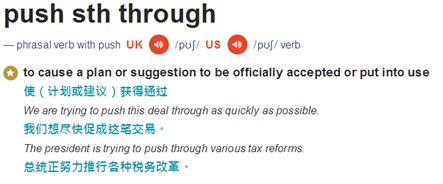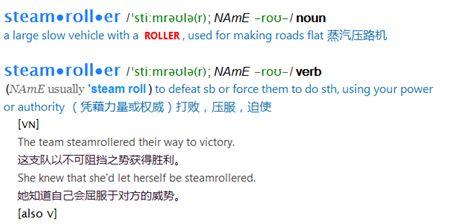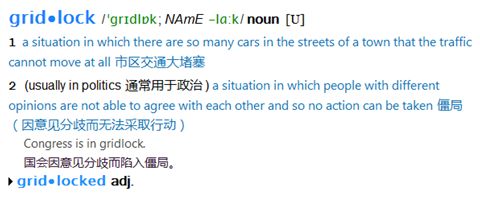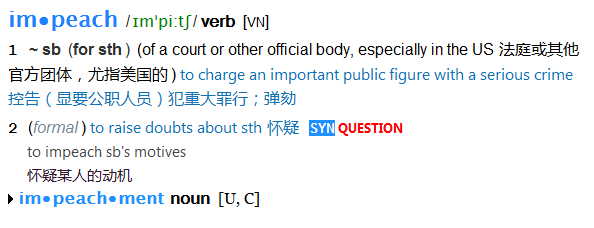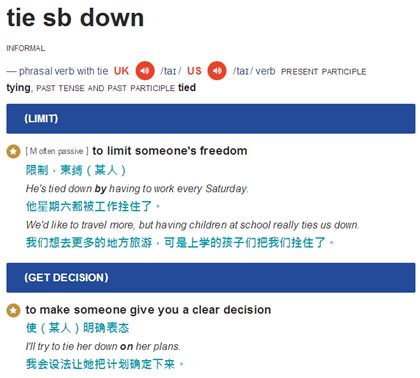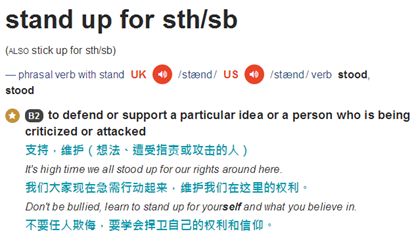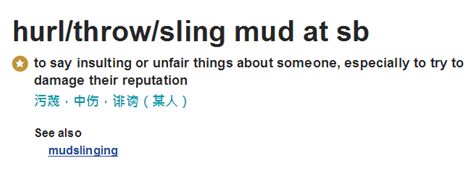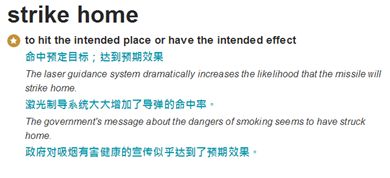本期原文选自The Economist 2016-10-15的封面文章The debasing of American politics,释义来自牛津高阶七版、剑桥在线词典、剑桥高阶学习词典、维基百科等资源。如果您也在学习The Economist,欢迎订阅我的文集The Economist,一起学习交流。
The debasing【1】 of American politics
Healthy democracies depend on unwritten rules. The Republican nominee has trampled all over【2】 them
How do people learn to accept what they once found unacceptable? In 1927 Frederic Thrasher published a "natural history" of 1,313 gangs in Chicago. Each of them lived by a set of unwritten rules that had come to make sense to gang members but were still repellent to everyone else. So it is with Donald Trump and many of his supporters. By normalising attitudes that, before he came along, were publicly taboo, Mr Trump has taken a knuckle-duster【3】 to American political culture.
【1】debase 败坏名声,降低价值
【2】trample over 践踏
【3】knuckle-duster 指节金属套,这里是指川普的各种花招
The recording of him boasting about grabbing women "by the pussy", long before he was a candidate, was unpleasant enough. More worrying still has been the insistence by many Trump supporters that his behaviour was normal. So too his threat, issued in the second presidential debate, to have Hillary Clinton thrown into jail if he wins. In a more fragile democracy that sort of talk would foreshadow【4】 post-election violence. Mercifully, America is not about to riot on November 9th. But the reasons have less to do with the state's power to enforce the letter of the law【5】 than with the unwritten rules that American democracy thrives on. It is these that Mr Trump is trampling over-and which Americans need to defend.
【4】foreshadow 预兆,预示
【5】the letter of the law 法律的字面规定
Hurt locker【6】
If this seems exaggerated, consider what Mr Trump has introduced to political discourse this year: the idea that Muslims must be banned from entering the country; that a federal judge born of Mexican parents was unfit to preside over a case involving Mr Trump; that a reporter's disability is ripe for mockery; that "crooked" Mrs Clinton must be watched lest she steal the election. Daniel Patrick Moynihan wrote that when many bad things happen at once, societies define deviancy down, until the list of what is unacceptable is short enough to be manageable. When parents wonder if a presidential debate is suitable for their children to watch, Mr Trump's promise to build a wall on the Mexican border no longer seems quite so shocking.
【6】Hurt locker:2010年美国战争电影The Hurt Locker,hurt是疼痛,locker是难以逃脱的封闭空间,两个词组合起来是指身体或精神上的伤痛或不适;最初是军队中的俚语,指因重伤而失去能力,后来在体育比赛中表示某个人或某个队因受伤而无法参赛(http://www.macmillandictionary.com/us/buzzword/entries/hurt-locker.html)
This way of doing politics is not new. Mr Trump is bringing into the mainstream a strain of for-profit bigotry and pessimism that believes life in the world's richest, most powerful country at the beginning of the 21st century could not possibly get any worse (see Schumpeter). On this view, it is not specific policies that are at fault【7】, but the system itself, which must be broken in order to solve America's problems.
【7】be at fault 有过错,有责任
Mr Trump's reality-television【8】 persona【9】 makes that proposition appear less alarming. It creates an ambiguity about how serious he is, and how seriously his audience needs to take him. With each outrage he has an iota of plausible deniability ("he's just being Trump!"). With each sign that he is unfit to be head of state, some supporters can cling to an alternative reality ("I believe he's a good man, really, and he's a great businessman, so he'll surely hire a great team").
【8】reality-television真人秀
【9】persona 表象人格,假象
Not all those at Trump rallies are bigoted【10】. But they are prepared to stand next to someone shouting chauvinist abuse or wearing a "Trump that bitch" T-shirt and conclude that if that's what's needed to defeat Mrs Clinton, then so be it. The best of Mr Trump's supporters hope that, by letting a wrecking ball loose to demolish the slums and tenements【11】 of Washington politics, public life can be rebuilt-so that it represents real people, rather than elites and interest groups【12】. When people conclude that politics is disgusting or absurd they lose faith in it. That usually makes things worse.
【10】bigoted 顽固盲从的,偏执的
【11】tenement 经济公寓,廉租公寓
【12】interest group 利益集团
If Mr Trump actually wins the election, Republicans will have to meet the expectations he has created-of protectionism, spending increases allied to【13】 tax cuts, hostility to foreigners and a retreat from decades of foreign policy. That would make America poorer, weaker and less secure. Meanwhile, the Republican Party would still need the support of those who have cheered on【14】 Mr Trump (see Lexington). Far from being renewed, politics would become even nastier and more brutal.
【13】allied to/with sth 类似的,有关联的
【14】cheer sb on 为某人喝彩,加油
If Mr Trump loses, Mrs Clinton will begin her presidency with tens of millions of people believing that she ought to be in jail. Perhaps he will lose so comprehensively that he takes the Republican majorities in both chambers down with him. That would afford Mrs Clinton at least two years, before the next mid-term elections, during which she might push through【15】 an immigration reform, increase spending on infrastructure and change the balance on the Supreme Court. These would be big achievements, but something close to 40% of voters would feel they were being steamrollered【16】 by a hostile government. Politics could become yet more polarised.
【15】push through 推行,使获得通过
【16】steamroller 本义是蒸汽压路机,引申为以势压人、专横的人,这里做动词,是指凭借力量或权威压服
Partly because Mrs Clinton is mistrusted and disliked, the more probable outcome in November is that she will be the next president but will face a House of Representatives controlled by Republicans-and perhaps a Senate, too. This is a recipe for furious, hate-filled gridlock【17】. There would be more government shutdowns and perhaps even an attempt at impeachment【18】. It would also mean yet more government by executive actions and regulation to get around【19】 Congress, feeding the widespread sense that Mrs Clinton is illegitimate.
【17】gridlock 政治上的僵局,交通大堵塞
【18】impeachment 弹劾;控告
【19】get around (somewhere) 避开,绕过
Tied down【20】 and unpopular at home, Mrs Clinton would be weaker abroad as well. She could less easily take risks by, say, standing up for【21】 trade or robustly seeing off challenges to American power from China and Russia. America's role in the world would shrink. Frustration and disillusion would grow.
【20】tie sb down 限制某人,束缚某人
【21】stand up for 支持,维护
The city on a hill【22】
Must it be this way? Once you start throwing mud【23】 in politics, it is very hard to stop. Yet, every so often, you get a glimpse of something better. When Todd Akin lost a winnable Senate seat in 2012, after haplessly trying to draw a distinction between "legitimate rape" and the not so legitimate sort, Republican candidates and political consultants took notice.
【22】city on a hill 山巅之城,源于耶稣"登山宝训"中的盐和光寓言(In Matthew 5:14, he tells his listeners, "You are the light of the world. A city that is set on a hill cannot be hidden.")。在美国殖民史早期,该词通过1630年温思罗普的布道文"基督教仁爱的典范"进入美国词典。温思罗普引用了圣经中的典故,告诫马萨诸塞湾殖民者要把他们的新社区建成"山巅之城",用光芒四射的"基督教美德"照亮世界,成为世界的典范。自此,"山巅之城"成为美国的政治信条。20世纪,在美国政治中多次使用这个意象。美国人自认为是占有道义高地的"上帝的选民",负有引领世界的宏大使命。
【23】throw mud at sb 污蔑,中伤,诽谤某人
Such a realisation needs to strike home【24】 on a grand scale. Healthy politics is not gang warfare【25】. It involves compromise, because to yield in some areas is to move forward in others. It is about antagonists settling on a plan, because to do nothing is the worst plan of all. It requires the insight that your opponent can be honourable and principled, however strongly you disagree. The 2016 election campaign has poured scorn on【26】 such ideas. All Americans are worse off as a result.
【24】strike home 达到预期效果
【25】gang warfare 帮派战
【26】pour scorn on sb/sth 对某人/某物嗤之以鼻
【小结】
美国政治中,曾以山巅之城(The city on a hill)的意象表达自己占有道义高地,负有引领世界的宏大使命。而今,美国政治却走向堕落(debasing)。健康的民主依赖于不成文的规则。而川普先生却向美国政治文化使出了千奇百怪的花招(knuckle-duster),践踏(trampled over)了所有不成文规则。他在第二次总统辩论中扬言如果他赢了大选就把希拉里送进监狱。要是在民主脆弱的国家,这种言论会预示(foreshadow)选举过后的暴力事件。所幸的是,美国还不至于在11月9日发生暴乱。但这跟国家执行法律明文规定(the letter of the law)的权力没什么关系,美国是依赖不成文的规则才发展起来。川普的一些政治话语(political discourse)偏离正轨,令人震惊,使美国政治陷入危机和阵痛(hurt locker)之中。他在主流政治中引入了唯利是图的偏执(for-profit bigotry)和悲观主义,认为美国在21世纪初还是世界上最富有最强大的国家,但现在的美国生活糟糕透顶。基于这样的观点,不是具体政策有问题(at fault),而是必须打破体制才能解决美国的问题。川普带有真人秀(reality-television)的表象人格(persona),所以这样的命题似乎不那么令人惊恐。不是所有的川普支持者都那么偏执(bigoted),他们最希望拆除华盛顿政治的贫民窟和廉租公寓(tenements),重塑公共生活,这样就能代表真正的人民,而不是代表精英和利益集团(interest groups)。如果川普赢得大选,共和党则必须兑现承诺——实行保护主义,减税并增加投入(spending increases allied to tax cuts),对外国人采取敌对态度,使外交政策倒退几十年。这会让美国变得更穷、更弱、更不稳定。同时,共和党还需要曾为川普助威喝彩(cheered on)的人们的支持。如果川普输了,希拉里开始执政,她必须面对数千万想把她推入监狱的人。如果川普一败涂地,共和党在参众两院的席位优势也随之减弱。这让希拉里在下次中期选举之前赢得两年时间,可以推行移民改革,增加基础设施开销,重建最高法院的平衡。这些都将是很大的进步,但将近40%的选民会有受到敌意政府压迫(steamrollered)之感。11月份的结果很可能是希拉里当选总统,但众议院由共和党把控,参议院也可能是这种情形。这是对于充满愤怒和仇恨的政治僵局(gridlock)的一剂良药。有可能会发生政府关门和总统弹劾(impeachment)事件。还有可能的是,绕过(get around)国会,更多地通过行政管理和调控的方式实现政府职能,这会让人们普遍感觉希拉里不按法律规定办事。希拉里在国内举步维艰(tied down),不受欢迎,在国外也一样。她不太可能冒险行事,比如支持(stand up for)贸易或者断然回绝中国和俄罗斯对美国实力的挑战。美国对世界的影响力会减弱。由此产生挫败感和幻灭。政治中的互相污蔑诽谤(throwing mud)一旦开始,就很难停下。然而,有时也会有好的一面。2012年Todd Akin本来很有把握赢得参议院席位,却因“合法强奸”的言论引起共和党候选人和政治顾问的注意而落选。实现“山巅之城”,还需要落到实处(strike home)。健康的政治不是帮派战(gang warfare),而是一种让步,以退为进。不管你多么不赞同对手,他都是值得尊敬的。2016年的选举运动对这种洞察明见嗤之以鼻(poured scorn on)。结果所有的美国人都遭殃了。
注:本文仅供学习交流之用,不代表作者观点。










